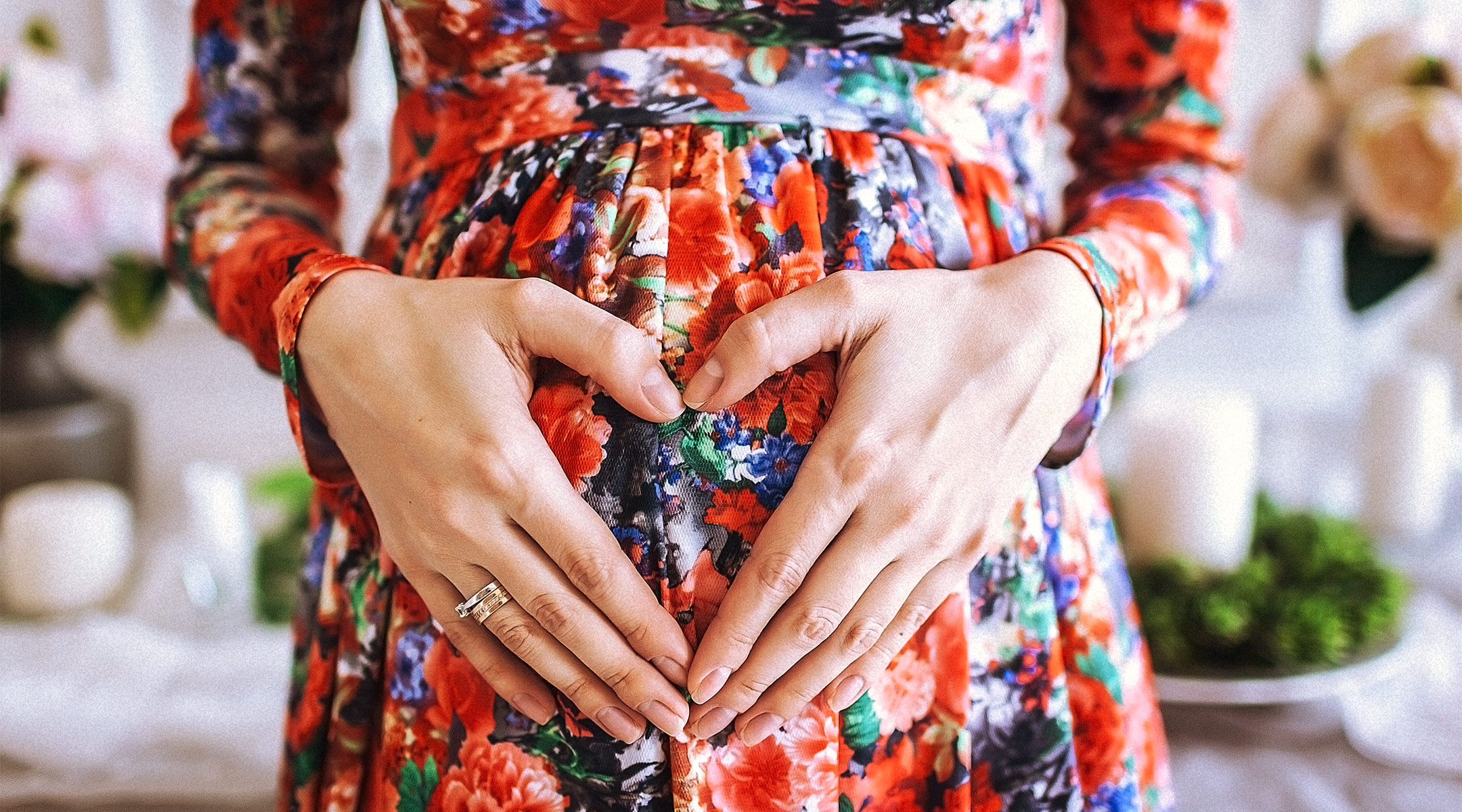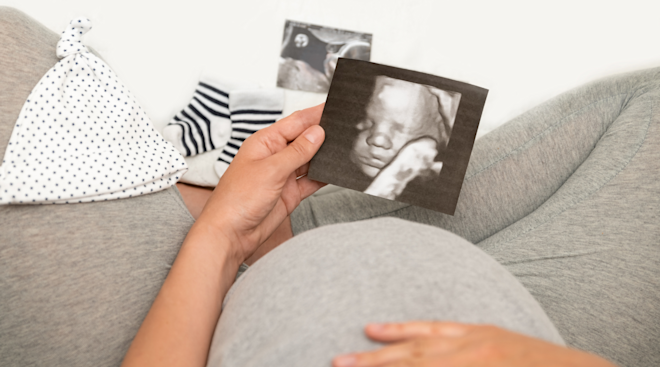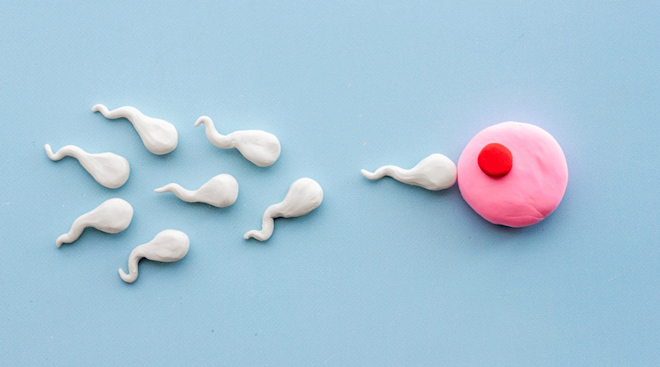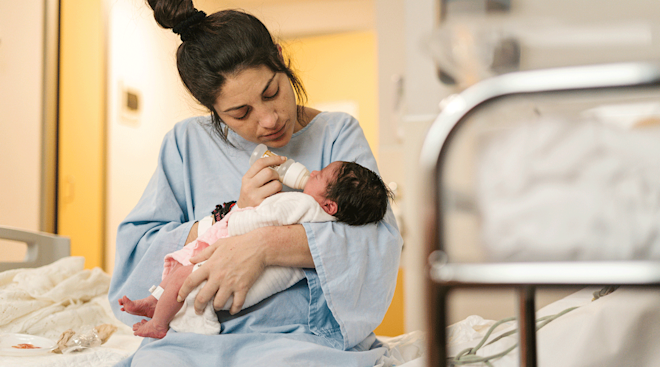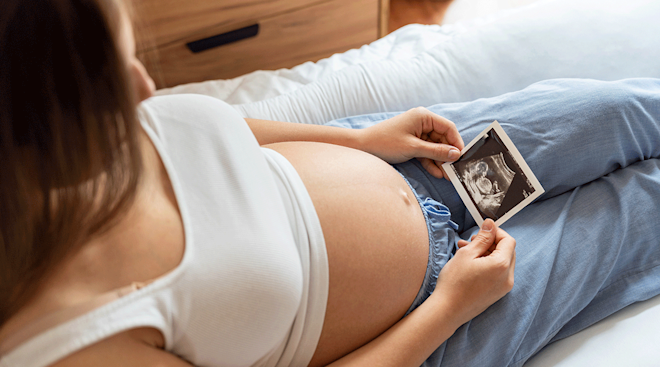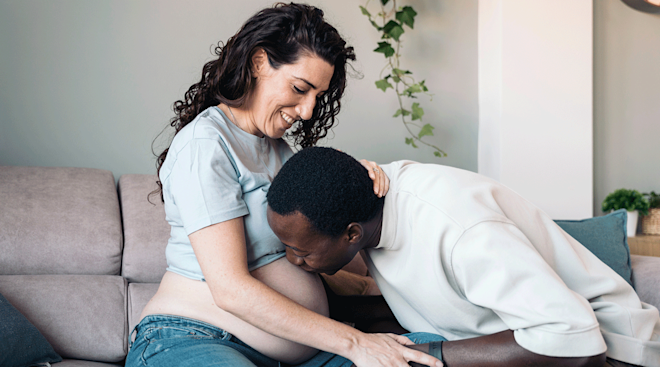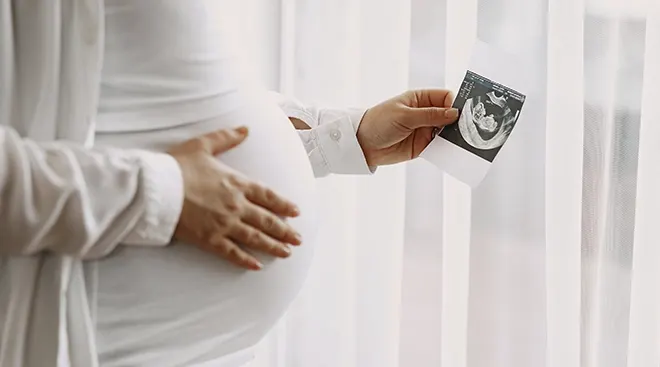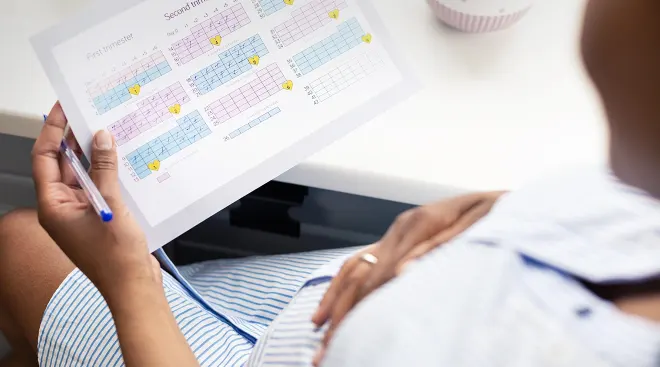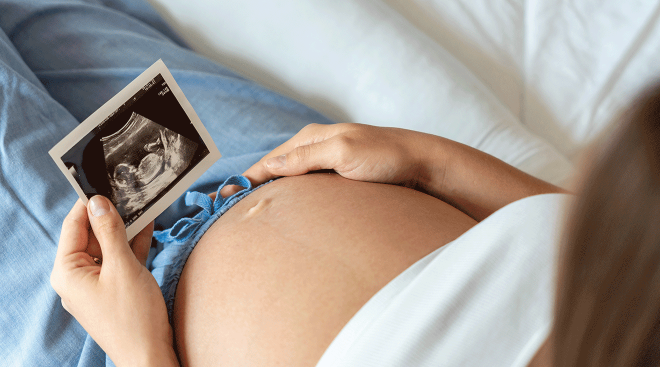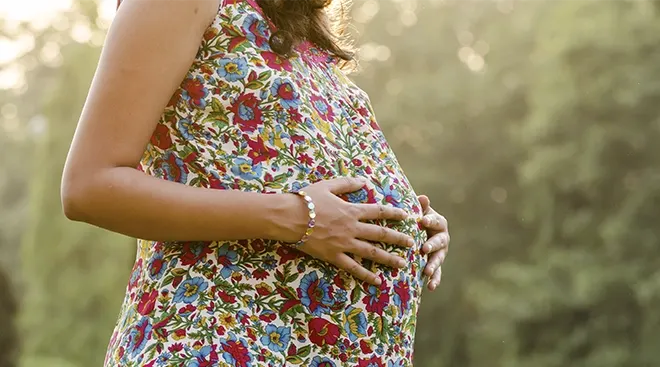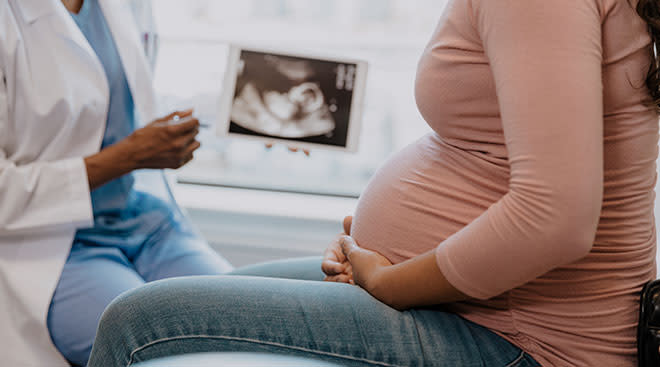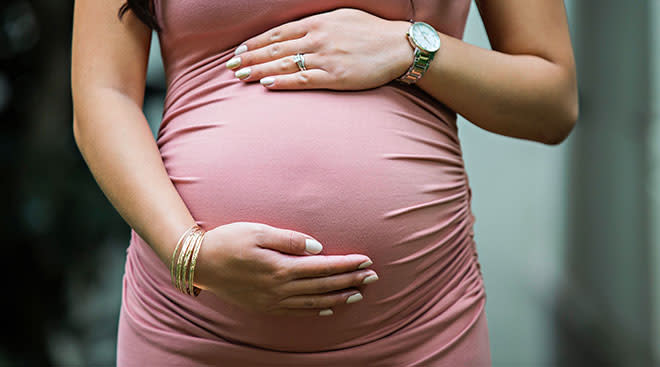Why Your Baby Is Really Kicking in the Womb, According to New Research
Those kicks you feel right around your third trimester are probably because baby is trying to “map” his own body and explore his surroundings, new research suggests.
The study was led by University College London (UCL) and measured brainwaves produced when newborn babies kick their limbs during rapid eye movement (REM) sleep. Researchers found fast brainwaves, which are usually noticed in newborn babies, trigger a reaction in the corresponding hemisphere.
In layman’s terms, when baby moves his right hand, it causes brainwaves to react in the part of the left brain hemisphere, which processes touch for the right hand. Researchers observed this movement and noted these brainwaves are the largest in premature babies, who at that age would have still been in the womb.
Nineteen newborns who were all about two days old took part in the study, and they were between 31 and 42 weeks corrected gestational age. Corrected gestational age measures the age babies would be if they were still in the womb.
The results suggest baby’s kicks during the third trimester help your unborn child develop areas of the brain that process sensory input, which is how baby develops a sense of her own body. Those fast brainwaves which came as a result of the movement disappear once baby is a few weeks old.
In addition to providing more insight into why the kicks occur, researchers hope the information could be beneficial for creating the best set-up for premature babies during their hospital stays.
"We think the findings have implications for providing the optimal hospital environment for infants born early, so that they receive appropriate sensory input,” says UCL researcher Kimberley Whitehead. “For example, it is already routine for infants to be ‘nested’ in their cots—this allows them to ‘feel’ a surface when their limbs kick, as if they were still inside the womb.”
During your pregnancy, baby’s kicks are a way for you to gain some idea on what he’s up to. And while there’s no way to know exactly what’s going on in the womb, noticing the fetal kick counts can help you keep track of his wellbeing.
Please note: The Bump and the materials and information it contains are not intended to, and do not constitute, medical or other health advice or diagnosis and should not be used as such. You should always consult with a qualified physician or health professional about your specific circumstances.
Navigate forward to interact with the calendar and select a date. Press the question mark key to get the keyboard shortcuts for changing dates.
































